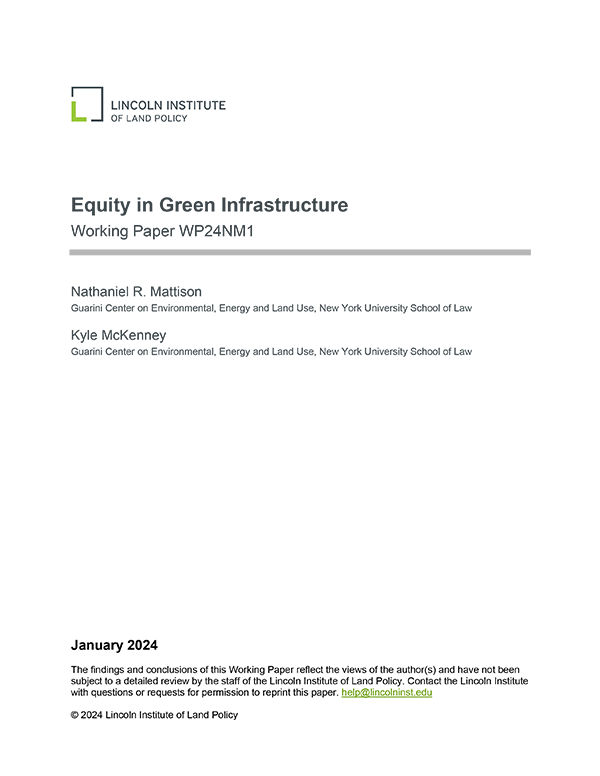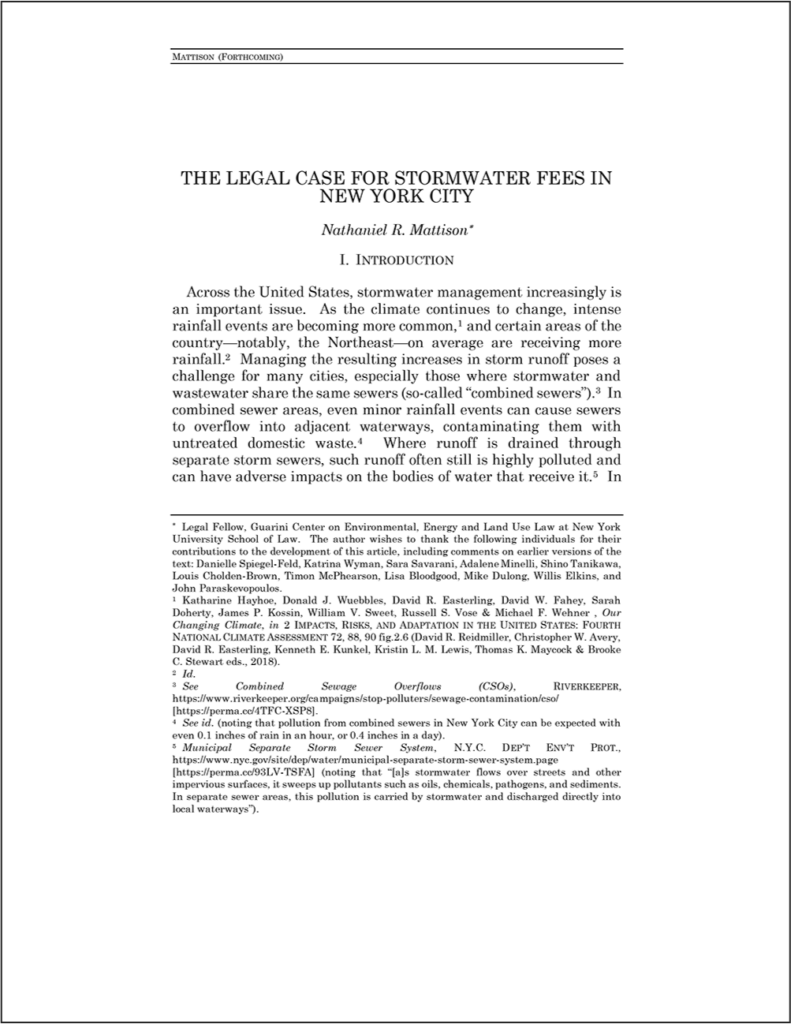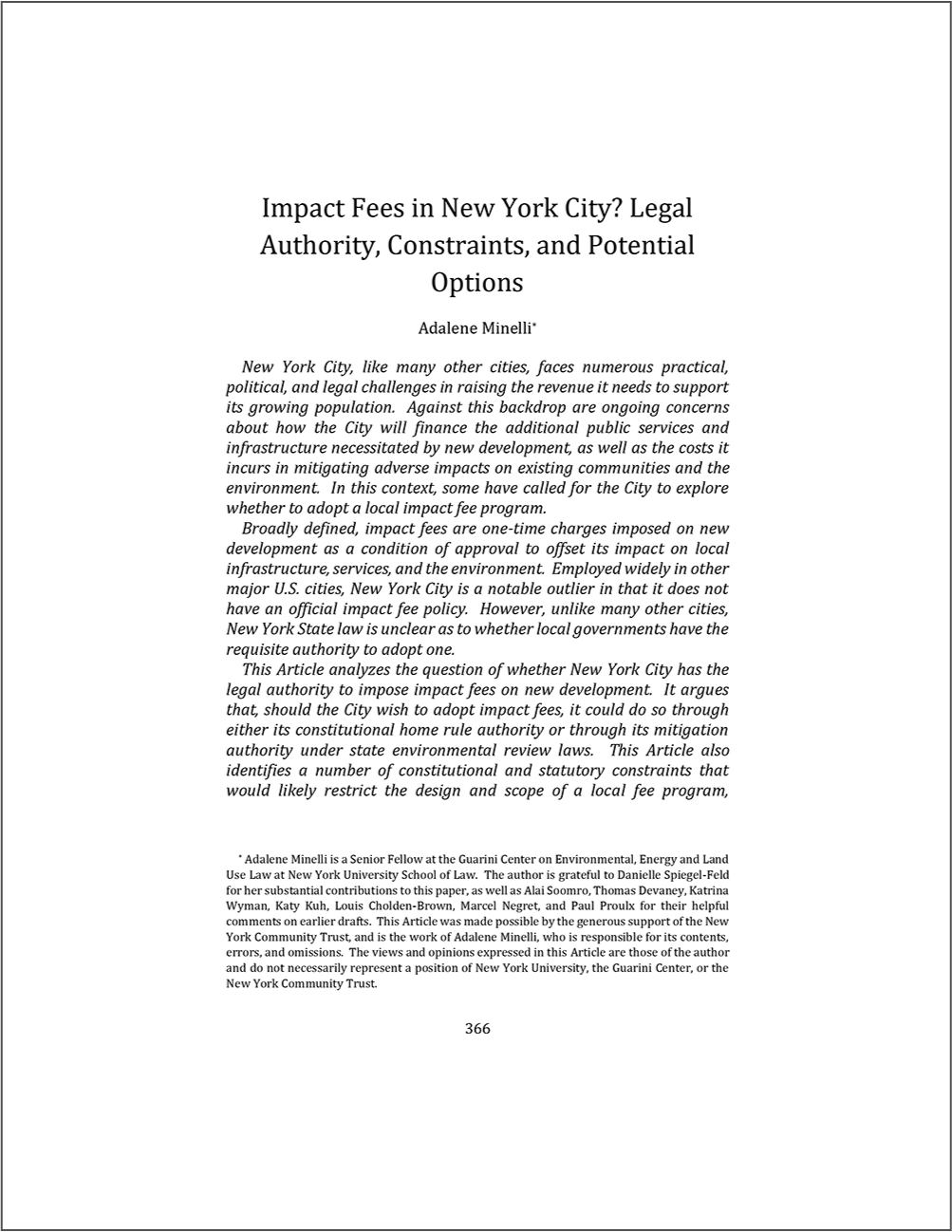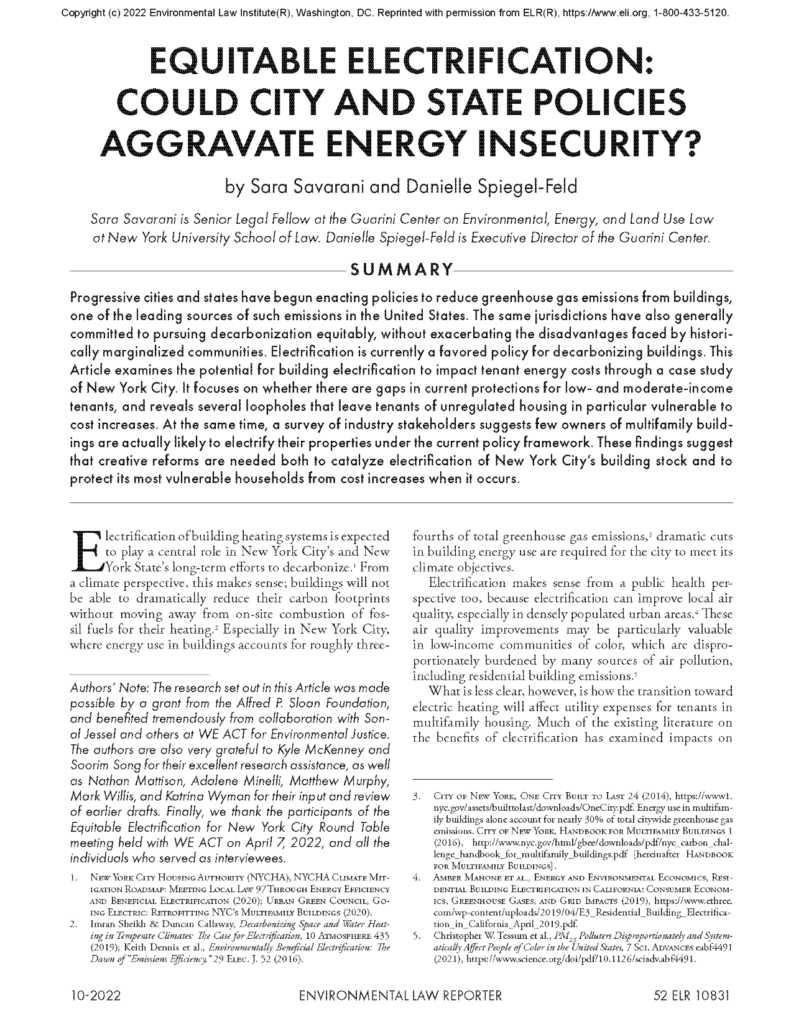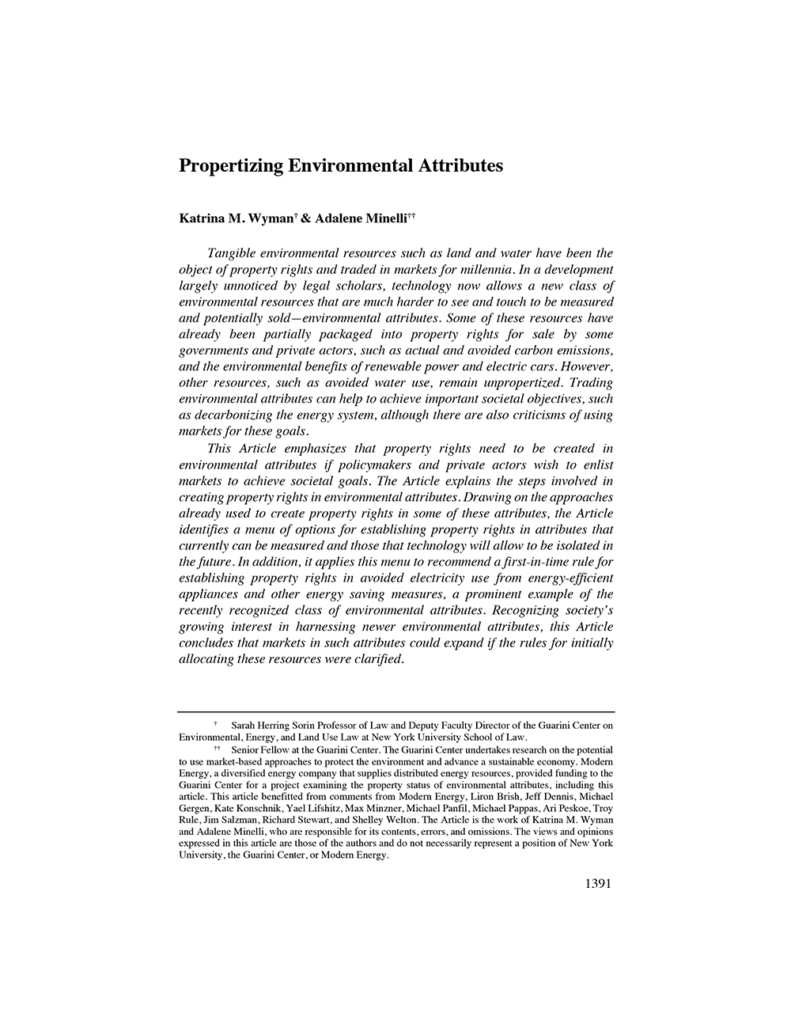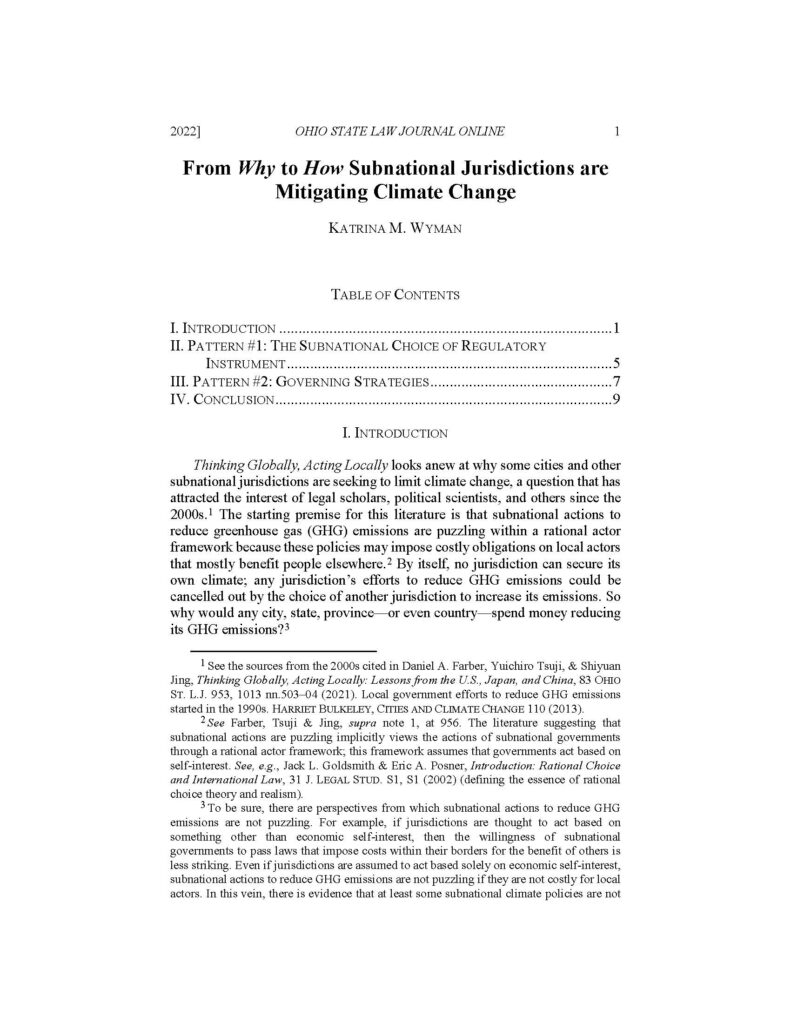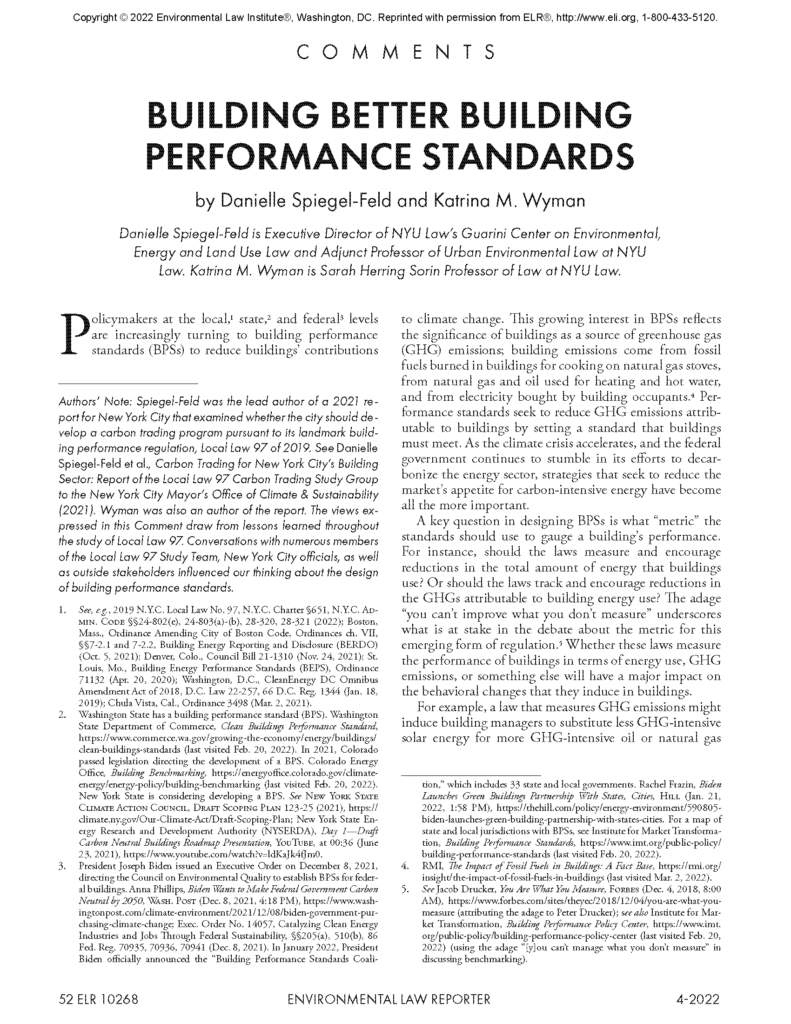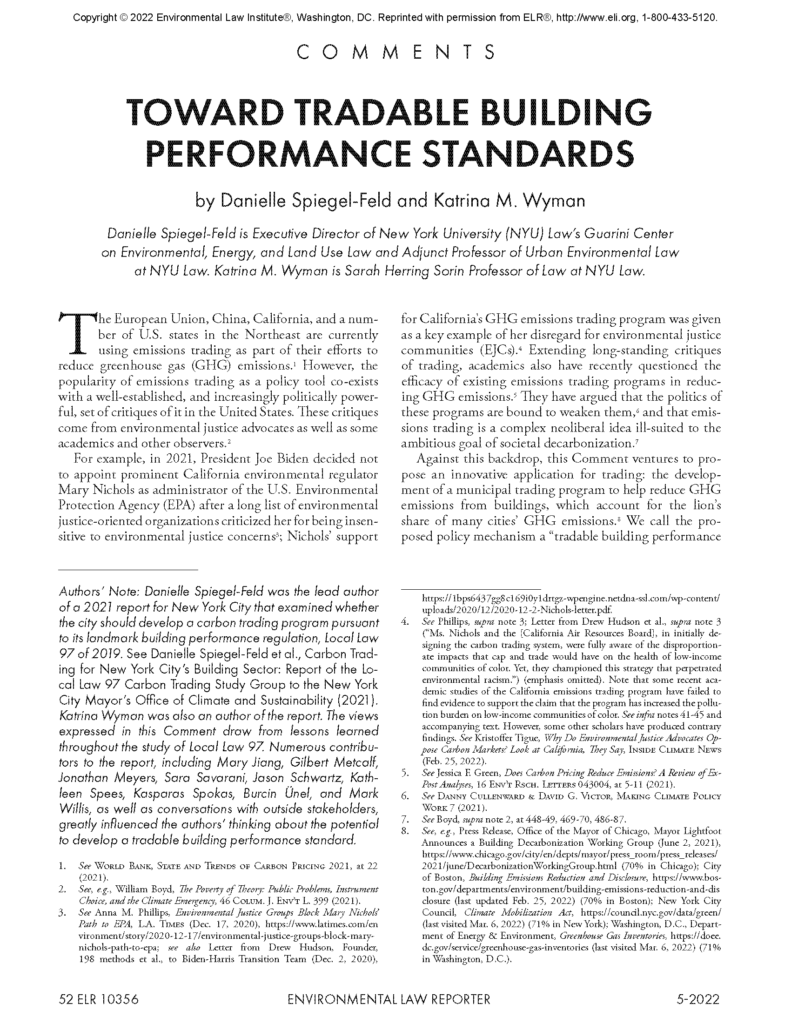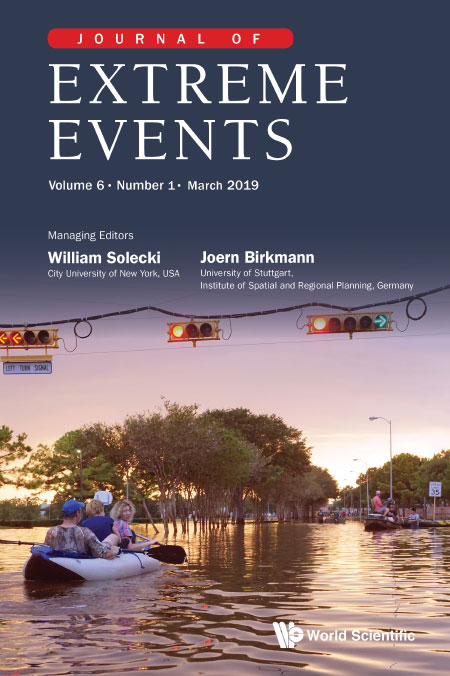Equity in Green Infrastructure
Many municipalities introduced their first stand-alone green infrastructure (“GI”) plans in the late 2000s and early 2010s, specifically as a means of achieving compliance with water quality standards set by the federal Clean Water Act. As climate change becomes a more imminent threat and extreme weather events increase in frequency, cities again are turning to […]
Equity in Green Infrastructure Read More »

